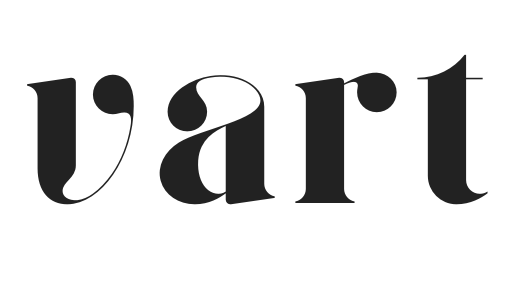1 day ago
Message
Upon a mailbox
I did stumble
And all that I wished
Was to leave a message
Perfect, like they were.
This is what I left:
I want to leave a message
Something Beautiful
And touching
Yet witty
And humorous
Intelligent
But not pretentious...
I guess this will work
I love you.
That is all.
Upon a mailbox
I did stumble
And all that I wished
Was to leave a message
Perfect, like they were.
This is what I left:
I want to leave a message
Something Beautiful
And touching
Yet witty
And humorous
Intelligent
But not pretentious...
I guess this will work
I love you.
That is all.
3 days ago

brown wooden house near body of water
https://images.unsplash.com/photo-1606075277031-918565c305b8?fm=jpg&fit=crop&w=600&q=80&fit=max
2 days ago
Los Angeles–area cultural institution The Huntington has announced gifts to its art collection funded by The Huntington’s Art Collectors’ Council—including a view of London by 17th-century Dutch artist Thomas Wijck; an 1872 bust of a Black woman bound by ropes by French sculptor https://t.co/Nf0z1D6dQA
2 days ago
02. The Mature Harappan Phase (2600 BC)
- Kot Diji represents the phase leading up to Mature Harappan Phase.
- By 2600 BC, the Indus Valley Civilization had entered into a mature stage.
2 days ago
“Two years ago, I wrote a column foolhardily, or hopefully, asking if we’d reached ‘the endpoint of revivalism’. The verdict is now in: hell no.” https://t.co/KHQocKbiaX

Jaded Palettes
This ‘new’ era of Abstract Expressionism is the perfect fit for an age of hyper-individualism and AI-powered press releases.
https://t.co/KHQocKbiaX
3 days ago

a small chicken standing on top of a roof
https://images.unsplash.com/photo-1632596789464-7b37c554605e?fm=jpg&fit=crop&w=600&q=80&fit=max
3 days ago
Museo del Prado, Madrid - Elliott Erwitt

, genre: photo, tags: Photograph, monochrome, Monochrome photography, Snapshot, Standing, Gentleman, completition: 1995.
https://uploads4.wikiart.org/images/elliott-erwitt/museo-del-prado-madrid-1995.jpg
4 days ago

cars parked on street in between buildings during daytime
https://images.unsplash.com/photo-1583228904017-c59421ab1022?fm=jpg&fit=crop&w=600&q=80&fit=max
5 days ago

a red and white bus driving past a tall building
https://images.unsplash.com/photo-1681590754505-ced139f683a9?fm=jpg&fit=crop&w=600&q=80&fit=max
4 days ago
Message
Upon a mailbox
I did stumble
And all that I wished
Was to leave a message
Perfect, like they were.
This is what I left:
I want to leave a message
Something Beautiful
And touching
Yet witty
And humorous
Intelligent
But not pretentious...
I guess this will work
I love you.
That is all.
Upon a mailbox
I did stumble
And all that I wished
Was to leave a message
Perfect, like they were.
This is what I left:
I want to leave a message
Something Beautiful
And touching
Yet witty
And humorous
Intelligent
But not pretentious...
I guess this will work
I love you.
That is all.
5 days ago
Misery
Glistening streams silently fall,
Upon broken shards of suffering.
The glass shards pierce my fragile mind,
And blood drips down my quavering hands.
My cries are so silent but shrill,
Yet no one detects my misery.
I beg and plead for someone’s help,
But they all ignore my eerie sobs.
Nothing but the rain touches me;
It can only wash the blood away;
I will always feel this damned pain.
But I will mask it with some façade.
Don’t worry about me right now,
These tears will dry and I’ll be okay.
It’s just another mental fight,
And it will all end soon enough.
Glistening streams silently fall,
Upon broken shards of suffering.
The glass shards pierce my fragile mind,
And blood drips down my quavering hands.
My cries are so silent but shrill,
Yet no one detects my misery.
I beg and plead for someone’s help,
But they all ignore my eerie sobs.
Nothing but the rain touches me;
It can only wash the blood away;
I will always feel this damned pain.
But I will mask it with some façade.
Don’t worry about me right now,
These tears will dry and I’ll be okay.
It’s just another mental fight,
And it will all end soon enough.
5 days ago
🎨 What role do you think emotions play in art creation? Can a painting or sculpture truly evoke feelings, or is it all up to the viewer's interpretation? Let's discuss! #ArtTalk #CreativeProcess #ArtCommunity
7 days ago
The tops of the pines - Ivan Shishkin

, genre: sketch and study, style: Realism, tags: forests-and-trees, Tree, Woody plant, Plant, Branch, White pine, red pine, Botany, Forest.
https://uploads8.wikiart.org/images/ivan-shishkin/the-tops-of-the-pines-1.jpg
12 months ago
Candida Gertler resigns from Outset Art Fund–Cites rising antisemitism amid calls for Tate to sever ties with her philanthropic organisation
https://t.co/i97fb9rdyc https://t.co/iaQSqKdiAy
https://t.co/i97fb9rdyc https://t.co/iaQSqKdiAy
12 months ago
A brush with… Jeff Wall: An in-depth interview with photographer Jeff Wall, discussing hallucinations, Franz Kafka and the inspiration he draws from comics
Read more: https://t.co/gkNXXvZBdZ
Listen to the full episode: https://t.co/vToN0YOQBi https://t.co/w9XYoGt8V8
Read more: https://t.co/gkNXXvZBdZ
Listen to the full episode: https://t.co/vToN0YOQBi https://t.co/w9XYoGt8V8
12 months ago
Findings by Jerome Frank, a Professor of Psychiatry at Johns Hopkins and Pioneer in Research on the Effects of Psychotherapy
- Frank’s research convinced him that the specific theoretical framework of a given therapy has little to do with its effectiveness.
- The most important factor is the therapist’s ability to induce the placebo effect, by convincing patients that they will improve.
- Many patients respond to therapists and therapies with scientific status, Frank noted, but others might prefer a faith healer, witchdoctor or shaman to a Harvard-trained psychiatrist.
- Frank spelled out this perspective in his influential 1961 book Persuasion" target="_blank" class="inline-link">https://findings.org.uk/do... and Healing: A Comparative Study of Psychotherapy.





